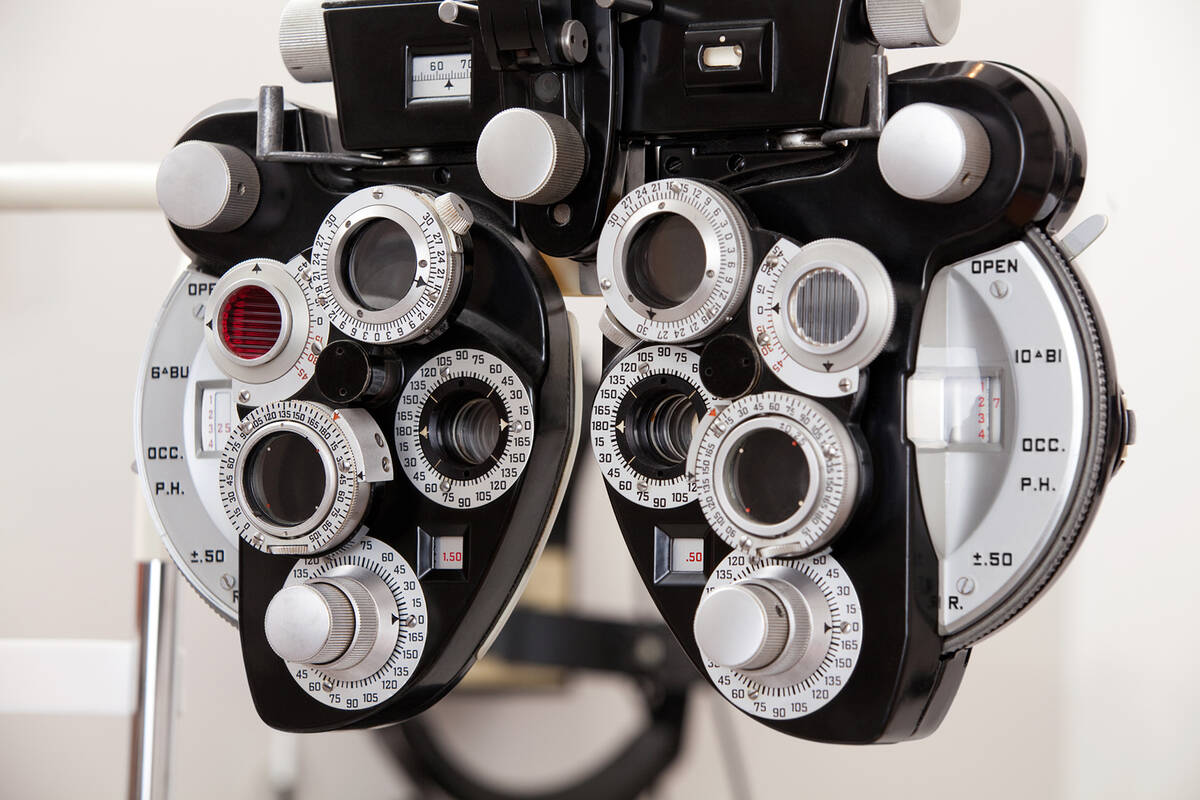Regular eye exams crucial for early detection of glaucoma
Question: During my recent eye exam, the eye doctor used a machine to blow a puff of air into each of my eyes. What does this test measure and how is it helpful in evaluating my vision? Is this something I need to have regularly repeated?
Answer: Vision tests are always important to maintain good eyesight. This particular scenario sounds like you had a noncontact tonometry test, also known as the puff test, as part of your comprehensive eye exam. It also can be done by gently touching a flat-tipped cone to your cornea, called applanation tonometry, or by other testing methods. These tests measure the fluid pressure in your eye.
It’s important to do this test because the eye condition glaucoma often is caused by abnormally high pressure in the eye. It’s sometimes called the “silent thief of sight.” Glaucoma can damage your optic nerve and is one of the leading causes of blindness in the U.S. It can occur at any age but is more common in older adults.
The most common form of glaucoma has no warning signs. You may notice patchy blind spots in your side or central vision. But the vision loss is often so gradual that you may not notice a change in vision until the condition is at an advanced stage.
You have a higher risk of developing glaucoma if you are 40 or older, or have a family history of glaucoma. Many people with glaucoma do not realize they have the condition until they are seen for a routine exam.
Unfortunately, the damage caused by glaucoma can’t be reversed. That’s why it’s important to have regular eye exams that include measurements of your eye pressure. Protect your vision by getting a comprehensive dilated eye exam at least once every two years. The dilated exam may show changes in the shape and color of the optic nerve fibers due to pressure.
Early diagnosis and treatment can preserve remaining sight. Lowering eye pressure in the early stages slows progression of the disease and helps save vision. If left untreated, glaucoma will eventually cause blindness.
Usually, glaucoma is first treated with daily eye drops or a laser procedure. The procedure is safe and performed in the health care professional’s office with no restrictions on activity by the day after the procedure. If eye drops or a laser procedure are not effective enough or cannot be tolerated, surgery may be needed.
There is a new minimally invasive surgery, called ab interno canaloplasty, or ABiC, to treat patients with glaucoma. During the procedure, a small catheter is used to flush out the part of the eye that drains pressure, resulting in lower eye pressure and better control of glaucoma.
No stent or device is left behind in the eye after the procedure, as they often are in traditional surgeries. The procedure has less risk of infection and quicker vision recovery than with traditional glaucoma procedures.
Ab interno canaloplasty is an option for people with glaucoma that can’t be controlled with eye drops or laser treatment. It’s also a good option for people who also have reduced vision from cataracts because the procedure usually can be performed at the same time as cataract surgery with little added risk.
So, plan on having a “puff test” or other test to check pressure at least once every two years during a comprehensive eye exam. At any time, share your eye or vision concerns with your primary care team or ophthalmologist, especially if you have a family history of glaucoma or other eye conditions.
Dr. Matthew Cooke is an ophthalmologist in the Mayo Clinic Health System in Eau Claire, Wisconsin.


















